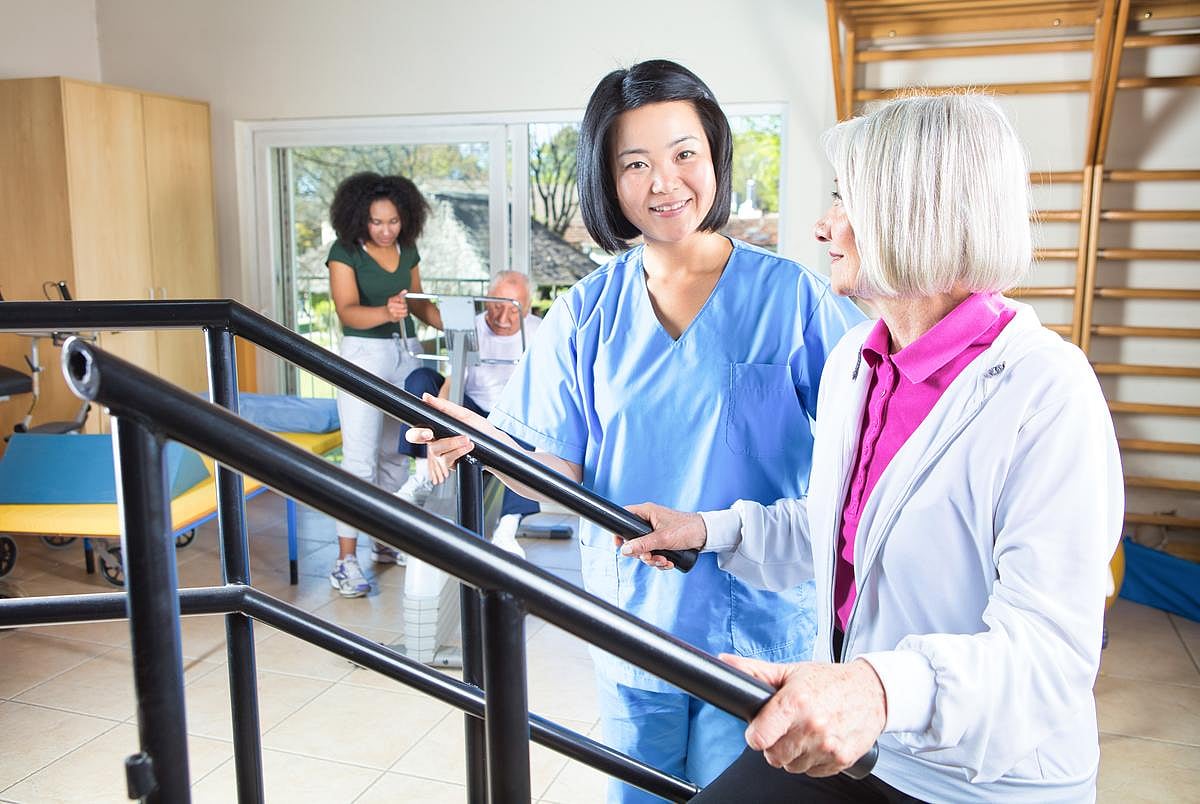Due to a recent change in our pharmacy software system, the process for submitting refill requests online has now changed.
Our previous mobile app and your current login credentials will no longer work.
Please click the Refill Button to begin the new process.
Thank you for your patience during this transition.
Note: we do accept walk-in for most routine immunizations including the COVID-19 vaccinations.
Click to make an appointment!
Manténgase sano!

- Dennis Thompson
- Posted February 21, 2025
Walking Exercises Improve Stroke Rehab
Stroke patients leave the hospital with better prospects if they’re forced to hoof it more during recovery, a new study suggests.
Adding a half-hour of progressive walking exercises to standard stroke rehab measurably improves patients’ quality of life and mobility by the time they go home, researchers say.
“Although guidelines recommend structured, progressive exercise after stroke, the uptake of these approaches that have sufficient intensity for rehab programs is still lagging,” researcher Janice Eng, a stroke rehabilitation specialist and professor of physical therapy at the University of British Columbia in Canada, said in a news release.
“Structured and progressively more challenging exercise, aided by wearable devices to provide feedback on intensity, can help people maintain safe intensity levels that are crucial for neuroplasticity -- which is the brain’s ability to heal and adapt,” Eng added.
For the study, her team recruited more than 300 stroke patients rehabbing at 12 hospitals across Canada. At the start, patients could walk an average of about 500 feet, nearly the distance of two average city blocks, during a standard six-minute walk test.
Roughly half were randomly assigned to add a minimum of 30 minutes of weight-bearing and walking activities to their daily rehab, with these activities increasing in intensity over time.
The goal was to get up to 2,000 steps of moderately intense exercise for a half-hour five days a week, researchers said.
Those assigned to walk as part of their rehab were able to go more than 140 feet farther on a six-minute walk test than those who received usual rehab, results show.
The rehab walkers also had significantly improved quality of life, balance, mobility and gait speed, researchers found.
“The first couple of months after a stroke are when the brain has the greatest ability to change,” Eng said. “Our study shows positive results during the initial rehabilitation stage.”
Not only does the study show the benefits of walking in rehab, but it also shows that stroke units can easily build the new exercise into their existing programs, she said.
“This was a very successful real-world trial,” Eng said.
Dr. Preeti Raghavan, an associate professor of physical medicine and rehabilitation at Johns Hopkins University who reviewed the findings, said it is "very difficult to change practice."
“The researchers show that it can be done on the inpatient rehabilitation unit, at a critical period after stroke when the brain is most plastic,” she said in a news release.
“The protocol increased endurance and further reduced disability after stroke,” added Raghavan, who was not involved in the study. “This is very positive data for stroke recovery.”
The new research was presented at the American Stroke Association’s annual meeting in Los Angeles earlier this month.
Findings presented at medical meetings should be considered preliminary until published in a peer-reviewed journal.
More information
The American Stroke Association has more on exercise after stroke.
SOURCE: American Stroke Association, news release, Jan. 30, 2025





